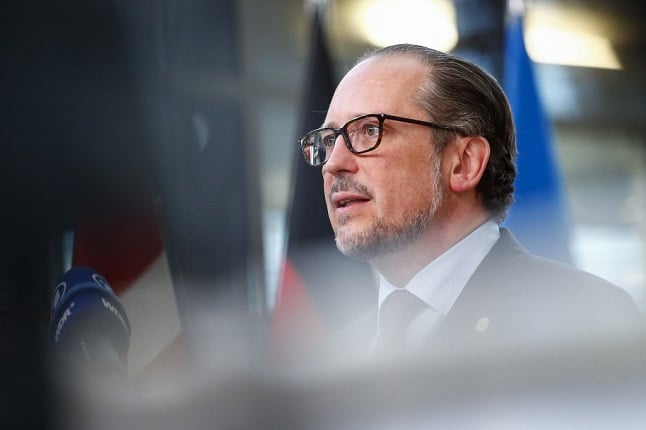Austrian Foreign Minister Alexander Schallenberg celebrated on social media the new Migration & Mobility Partnership Agreement signed with his Indian counterpart, Subrahmanyam Jaishankar, which, according to the Austrian Foreign Ministry, provides a clear commitment to cooperation in “readmission matters” and “legal labour migration”.
The agreement comes in response to the “alarming” increase in arrivals of illegal migrants from India witnessed last year, the Austrian Foreign Ministry said.
By establishing a contractual basis for repatriations to India, this partnership aims to address the challenges of illegal migration and enhance collaboration between the two nations.
Met with Indian colleague @DrSJaishankar. Glad to sign our Migration & Mobility Partnerhip Agreement as a strong signal of our close bond: it intensifies cooperation in combating illegal migration while promoting mobility for highly qualified workers needed by Austrian economy. pic.twitter.com/lYpmQIfJUQ
— Alexander Schallenberg (@a_schallenberg) May 13, 2023
Foreign Minister Alexander Schallenberg emphasised the significance of the deal.
“The agreement is a clear commitment to strengthened Austrian-Indian cooperation in the fight against illegal migration. We are creating a contractual basis for repatriation to India for the first time,” he said.
The signing took place on the sidelines of the EU-India Ministerial Forum in Stockholm, following its approving earlier this year during the visit of the Indian Foreign Minister to Vienna.
COMPARED: Germany’s Chancenkarte vs. Austria’s Red-White-Red card for skilled non-EU workers
In addition to the repatriation aspect, Austria has successfully campaigned for the abolition of visa-free entry from India to Serbia, Schallenberg noted. These combined efforts are expected to result in a notable reduction in illegal migration from India – as many migrants from India reached Austria via the Balkan country.
Promotion of migration among highly skilled workers
“The agreement is a milestone in our relations with the world’s most populous country. It creates opportunities to bring Indian workers to Austria, for example, within the framework of the Red-White-Red Card. Highly qualified Indians can now fill gaps where there is a lack of labour in Austria,” said Schallenberg, underscoring the importance of the migration and mobility partnership.
READ ALSO: How critical is the situation in Austrian hospitals?
The Austrian approach facilitates contact between companies and potential qualified Indian workers, the ministry said in a press statement. In addition, cooperation between state agencies aims to streamline the process for Indian nationals to find suitable employment opportunities in Austria.
The idea is to bring more highly skilled workers to help Austria’s labour shortage crisis.
Moreover, the ministry said that the agreement facilitates an exchange of students between India and Austria and expedites the visa issuance process, particularly for journalists and scientists, the ministry said without giving further details.
The migration and mobility partnership also introduces an Austrian-Indian working holiday program, allowing young people to undertake short-term, temporary jobs in the destination country or pursue educational opportunities without an employment permit.
READ ALSO: How to get a working holiday visa in Austria
To ensure the effective implementation of the agreement, a joint working group will oversee its progress and review its outcomes, the ministry added.



 Please whitelist us to continue reading.
Please whitelist us to continue reading.
Member comments